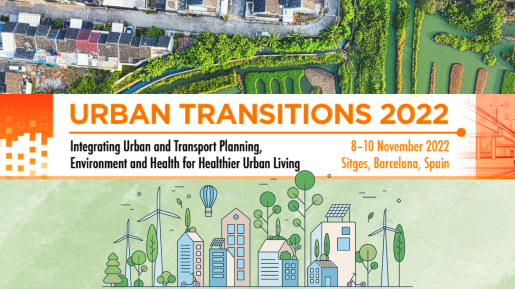NICHES presents at the Urban Transitions 2022 conference
NICHES partner Johannes Langemeyer from the Institute of Environmental Science and Technology the Institute of Environmental Science and Technology at the The Autonomous University of Barcelona (ICTA - UAB) has participated in the Urban Transitions 2022 conference held in Sitges, Spain during 8-10 November 2022.
The conference aims to promote healthy urban development by bringing together different disciplines working within cities. It gathers leading experts on urban and transport planning, architecture, environmental exposure assessment, environmental epidemiology, physical activity, climate change, and public health and governance to discuss current challenges and solutions.
Dr Langemeyer’s presentation focused on the potential of nature-based solutions (NbS) for resilient and equitable transitions in an urban context. His presentation outlined the technical lock-in of urban sewer systems as well as the global challenge the effects of urbanisation pose. Densification of cities necessitates adaptability in terms of finding new and functional city-tailored agriculture practices.
The presentation further covered the typology of NbS in the following three types: the use of existing ecosystems (e.g. protected area management), restoration of ecosystems (e.g. mangrove restoration), and the creation of ecosystems (e.g. vertical forests). Essentially, NbS have the potential to increase urban resilience and adaptability to disturbances, which renders urban areas sustainable in the long-term. This would entail the management of all resources of the urban region in a way that enhances the integration of all sub-systems and guarantees the wellbeing of future generations ensuring distributional equity.
Dr Langemeyer’s presentation ended with the idea that nature, society, and the economy have to work within a specific relational framework in order to ensure strong sustainability. All economic activities within society have to be within the boundaries of nature’s capital and not to exceed it (Fig.1).
Figure 1. The three spheres of sustainability. Source: Dr Johannes Langemeyer’s presentation.
The presentation concludes that NbS have immense potential to contribute to equitable urban development, but the success of implementation depends on whether systemic interactions are taken into account such as distributive, procedural, and recognition aspects.
Read more about Urban Transitions 2022 here.
